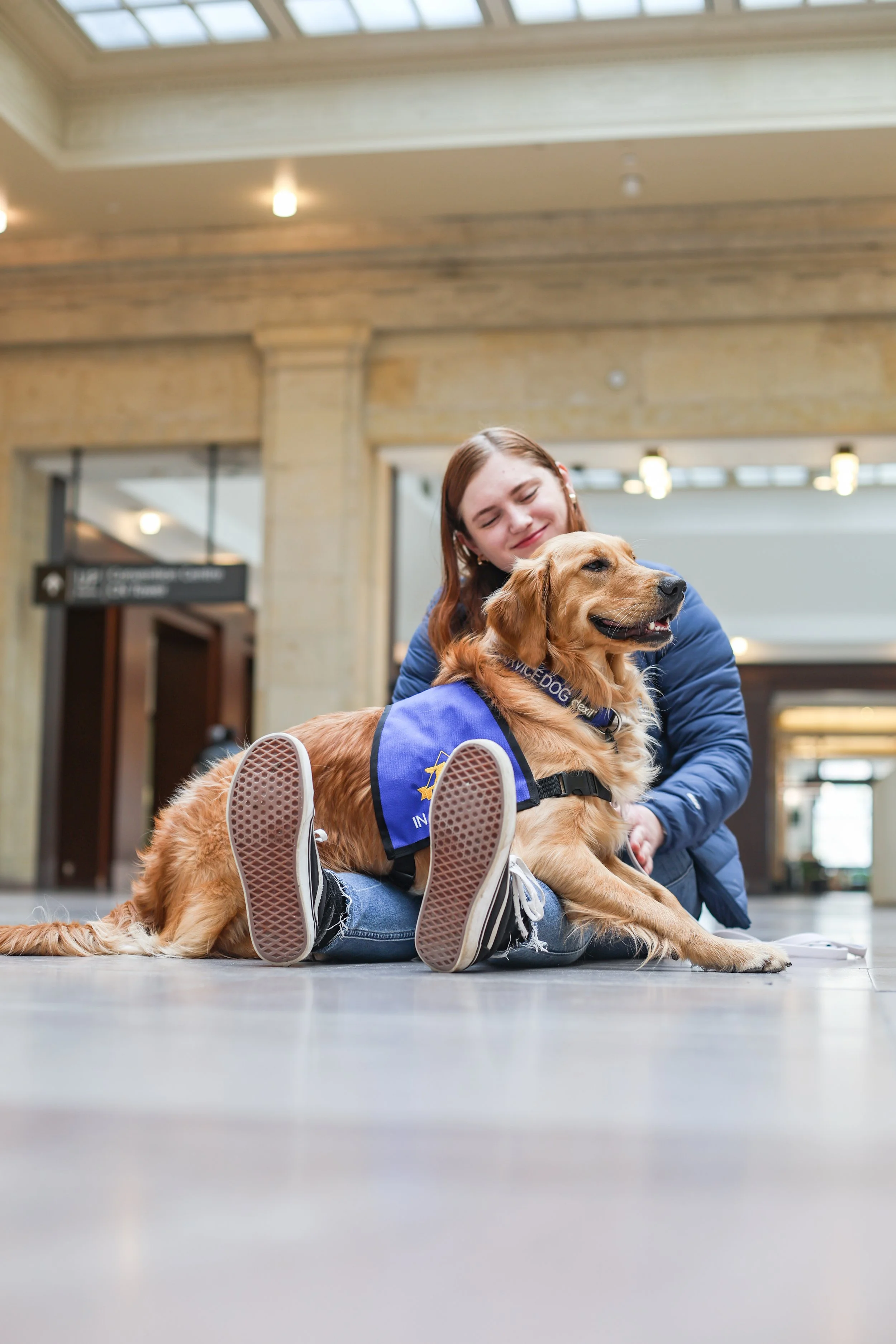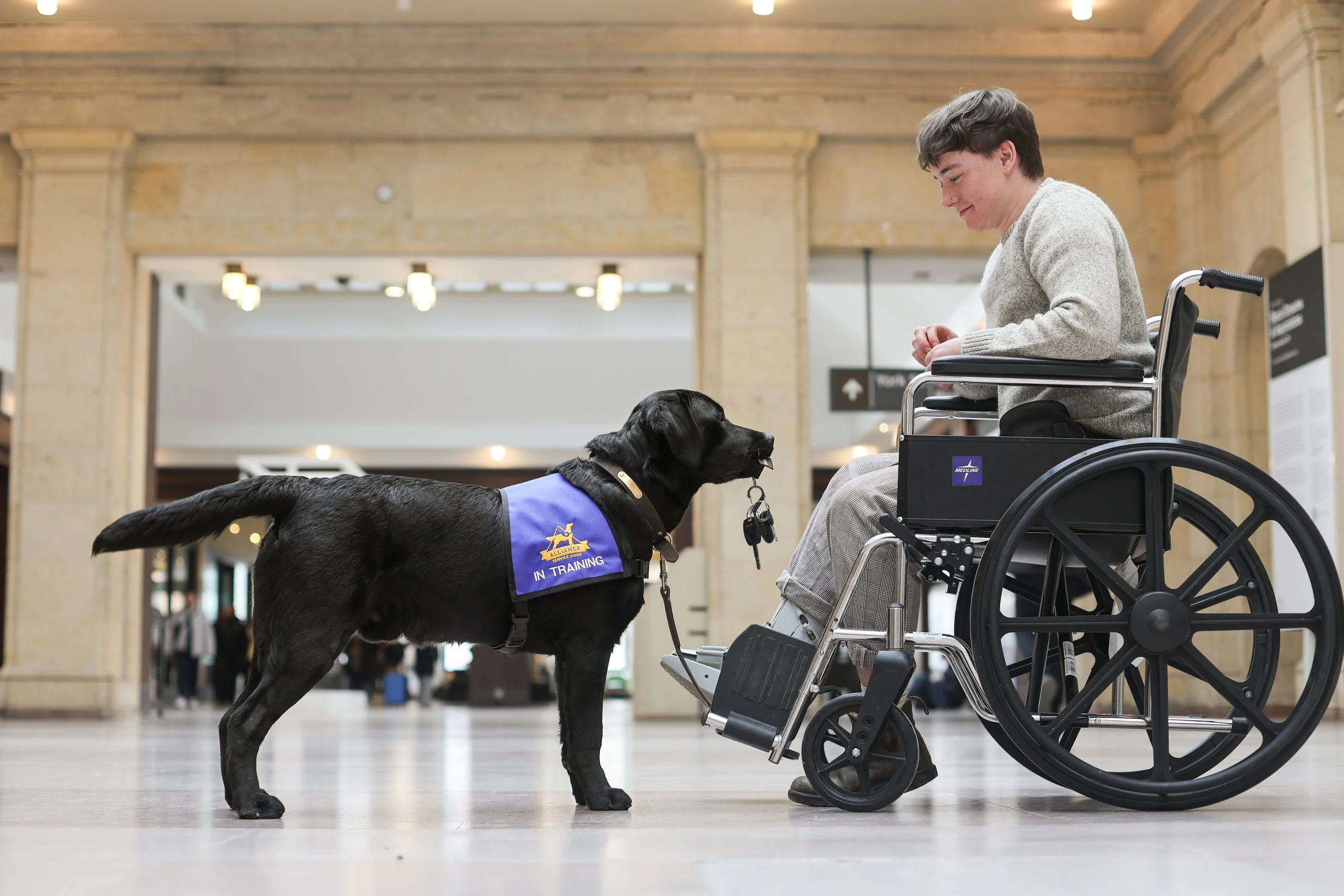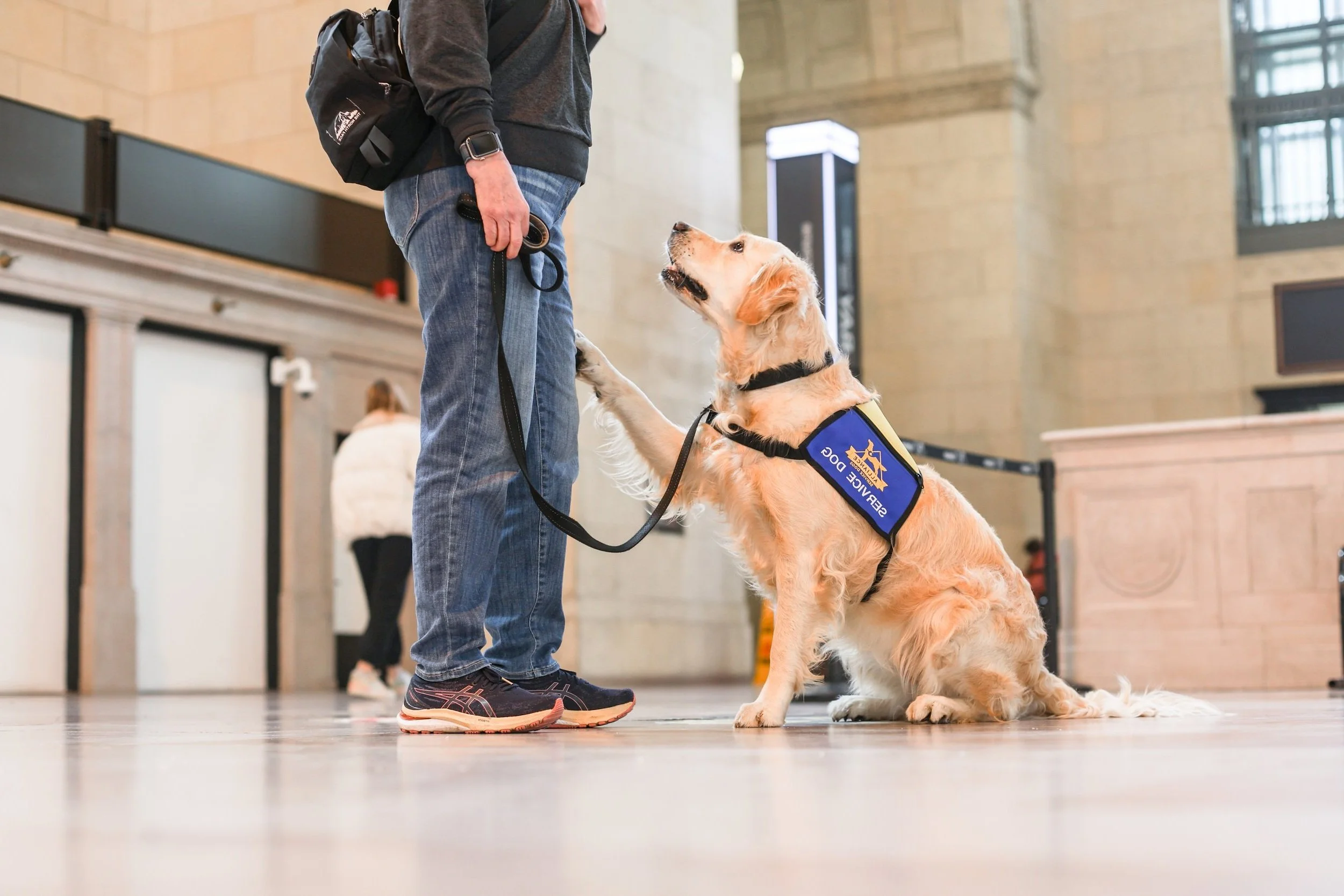Professional coaching for owner-handler service dog teams.
Psychiatric, Cognitive, & Developmental
PTSD & C-PTSD
Mood disorders (ex. bipolar disorder)
Autism spectrum disorder (youth & adult)
Traumatic brain injury
Mobility Assistance
Orthopaedic disabilities (ex. muscular dystrophy, traumatic injury)
Neurological disabilities (ex. cerebral palsy)
Fibromyalgia, POTS, EDS, & others
Medical Alert & Response
Diabetes
Epilepsy & seizure response
Chronic migraine
Hearing alert (Deaf & hard-of-hearing)
The Program
The Alliance Service Dogs training program consists of 5 phases:
Puppy Prospect (students may skip this phase if their dog is over 6 months of age)
Life Skills (students may test out of this phase if they have already done significant training on their own)
Public Access Foundations
Task Training
Advanced Concepts & Graduation Preparation
Each phase takes approximately 3 to 6 months to complete, delivered via weekly or bi-weekly private lessons. Evaluations are conducted at the end of each phase, and students must pass the evaluation to move to the next phase. The final evaluation, after Phase 5, graduates the dog from the program entirely. Time taken to complete the program in its entirety depends heavily on the amount of practice done by the team between lessons. Many teams take approximately 2 years from start to finish.
Dogs are continuously assessed for signs of stress, fear, or aggression, and may be washed (retired) from the program at any point if deemed necessary by the instructor.
-
Training your own service dog is a monumental task and should not be taken lightly. Successful handlers are:
Diagnosed with a disability by a medical professional. In the eyes of the law, service dogs are classified as medical equipment, and they fulfil exactly that purpose. Obtaining service dog status for your pet dog, solely for housing/travel/public access reasons, is illegal and dangerous.
In possession of a letter from a medical professional, detailing their need for a service animal. This is legally required in Ontario. Alliance Service Dogs must receive a copy of this letter prior to the initial assessment lesson.
Able to communicate honestly about their disability, needs, and limitations. We do need to have a good understanding of your medical history, enough to ensure that we are coaching you appropriately (avoiding triggers, minimizing stress, and adapting to your preferences) as well as training your dog to meet your needs in a way that is going to help you long-term.
Able to dedicate a significant amount of time, energy, and money to the training process. Unlike a dog bred, raised, and trained by an organization, where applicants receive a fully-trained dog sometimes at no cost, the owner-training process requires considerable resources.
-
Whether you already have a prospect, or you are in the process of acquiring one, there are some important qualities to be aware of. Successful prospects are:
Physically healthy. Service dogs must be active and sound enough to work for long periods throughout the day. Dogs who have chronic health conditions or poor endurance are not suitable for this demanding job.
Under 4 years of age. As service dogs tend to retire around 9-12 years of age, dogs over 4 years will work for only a few years (after the 2-year training period) before having to retire.
Temperamentally sound. Fear, anxiety, or aggression issues are often deeply rooted. Not only do they take a lot of effort and time to solve, but they also cause stress for the dog, handler, and the public.
Motivated to work for food. The vast majority of training is done using food rewards, as this is the easiest and most effective way to train difficult behaviours to a high level of accuracy.
Physically and temperamentally suitable for the required tasks. Some traits are barriers in training for service work, depending on the disability.
It is fine if you are unsure whether or not your dog fits these qualities. The initial assessment will help clarify where your dog falls within the requirements.
How much does it cost?
Final cost varies widely and depends on a large number of variables, including public access requirements, tasking requirements, previous training done, training progression, and the handler’s support needs. Most students require at least 50-100 hours of instruction over 1-2 years. Lessons are 1 hour in duration and booked on a recurring weekly or biweekly schedule.
Our rates:
Initial Assessments (with Claire, shadowed by an Associate Instructor) are $135+HST.
Private lessons and virtual consults with Claire are $110+HST per hour.
Private lessons with an Associate Instructor are $90+HST per hour.
Current availability:
Last updated July 28th 2024
Applications are open now! Prospective students can be seen for assessment and possible entry to the Program in August 2024.
Don’t have a dog yet?
Book a virtual consult with Claire for guidance on breed selection, breeder search, and puppy selection. Consults are 1 hour long, cost $110+HST, and include a follow-up email with personalized recommendations, helpful links, and the Alliance Service Dogs puppy aptitude evaluation. Contact us to get started!
Start here:
Talk to your doctor and obtain a letter demonstrating your need for a service animal to mitigate your disability. Remember, this is required by law, and Alliance Service Dogs must receive a copy prior to the initial assessment lesson. If you need help with the letter wording, or if you are unsure whether a service dog could help you, please reach out.
Apply through the form below. The more detail you put in, the smoother the initial assessment lesson will be - but please share as much or as little as you feel comfortable. Many feel more at ease sharing sensitive information face-to-face with their instructor, and this is fine.
Book your Initial Assessment (we will be in touch within 48 hours). This is a 60-minute meeting with your instructor, you, your dog, and any support people you’d like to bring along. Your instructor will have some specific questions for you, and the rest of the time will be spent doing an aptitude test with you and your dog.
If, after the Assessment, we feel confident that we can help you, then you will enter into the Program. Please note that acceptance into the Program is not guaranteed. We will only take on students we feel we can help, and whose dogs are suitable for service training.





